After realizing that I’d made the database design too complicated, and eventually re-designing it, an alpha version of the assignment wizard is up and running and is available at wizard.lncd.lincoln.ac.uk. The application meets the basic functional requirements of the proposed assignment wizard, but will require further development and testing before being used properly. The main functions of the current iteration of the assignment wizard are as follows:
- Allows university staff to login
- User can select a module to view (currently limited to 10 modules, purely for testing purposes.)
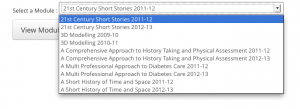
- Application retrieves module information from Nucleus and presents the key points to the user – assessment strategy, learning outcomes etc.
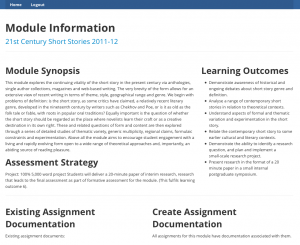
- Assignment details are retrieved from Nucleus, user can select which assignment to create documentation for
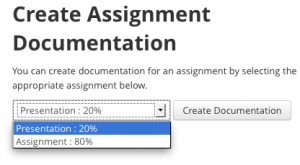
- User is prompted for the necessary details to create a full assignment brief document.
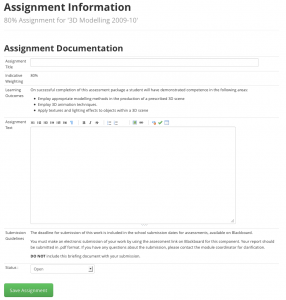
- When the user has completed all of the required fields, they can generate a PDF document, based on existing assignment documentation.

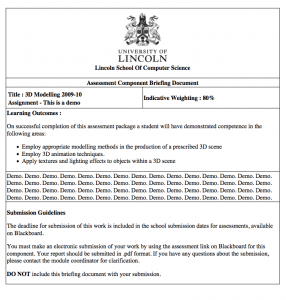
- Now that an assignment document has been created, the user can create a Criterion Reference Grid document, which details the various criteria used when marking the corresponding assignment.
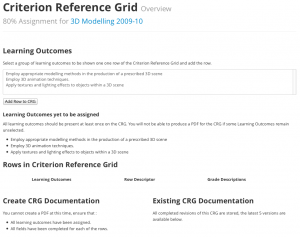
- The learning outcomes associated with the assignment can be grouped into multiple rows, so that one learning outcome can be addressed by multiple criteria in the CRG. Each learning outcome has to be assigned to at least one row of the grid. Each row then requires a descriptor and a description of the requirement for meeting each grade for that particular criterion.

- Once these have been completed for each row, a PDF can be created. This PDF is versioned and stored, so that older versions of the marking grid can be referred to, if required.


As I mentioned previously, this isn’t intended to be a fully functioning application at this stage, further development and refinement would be required in order to make it into a fully usable application. However, this proof of concept application shows how existing sources of course-related data at the university can be re-purposed and reused in order to (potentially) improve the efficiency and effectiveness of the assignment writing processes within the university.